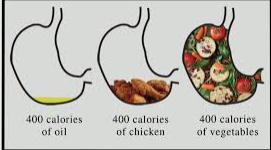Appetite Loss
If you are experiencing appetite loss you may eat less than usual, not feel hungry at all, or feel full after eating only a small amount. Having no appetite can lead to serious complications. These include weight loss, not getting nutrients your body needs, fatigue, and weakness from muscle loss. For those suffering from chronic diseases like cirrhosis, these issues can slow recovery and a decreased quality of life. It is important to talk to your healthcare provider (doctor, nurse practitioner, etc) if you lose your appetite. They can help you with making sure you are getting the nutrition you need. Your healthcare provider may also refer you to a dietitian, who are experts in food and nutrition.
Causes of appetite loss

Many different things can cause appetite loss in a person with cirrhosis, including:
- A change in your metabolism due to your illness, which can also be complicated by different treatments, also known as ‘cachexia.’
- Changes in metabolism, which is your body’s process of breaking down food and turning it into energy. Such changes can happen with cirrhosis.
- Ascites, or a buildup of fluid in the belly, which can cause swelling, discomfort, and a feeling of fullness
- An enlarged liver, which pushes on the stomach and creates a feeling of fullness
- Medications
- Surgery or procedures on parts of the gastrointestinal system
- Side effects of cirrhosis treatments
Managing appetite loss
If possible, the first step in treating appetite loss is to address the cause. Treatment for side effects of cirrhosis treatments such as nausea, pain, or depression may help improve appetite.
Although you may not feel like eating, remember that getting good nutrition and keeping a healthy weight are important parts of your recovery.
Consider the following tips for getting proper nutrition when your appetite is low:
- Eat smaller, more frequent high calorie meals each day (every 3 -4 hours)
- Try to not drink a lot of fluids when you are eating so there is more room for food.
- Determine which times of day you are hungry and eat at those times
- Eat nutritious snacks that are high in calories and protein. Examples include dried fruits, nuts and nut butters, yogurt, cheese, eggs, cereal, and protein or granola bars.
- Ask family members or friends to get groceries and prepare food for you when you are too tired to shop or cook. Also consider ordering precooked meals from a meal preparation company, such as Meals on Wheels. Many grocery stores also offer pick-up or delivery services.
- Try to eat in pleasant surroundings and with family or friends
- If the smell or taste of food makes you nauseous, eat food that is cold or at room temperature. This will decrease its odor and reduce its taste.
- Try to reduce your intake of drinks like coffee, tea and water as they can decrease your appetite and do not have much nutrition
- Sometimes, your health care team may use different interventions including placing feeding tubes. There are different types, see: What to Expect in the ICU
